Thanks to the New Zealand people who are helping the stranded whales at Farewell Spit in Golden Bay, New Zealand
Hundreds of whales dead after mass stranding in New Zealand
By Ben Westcott, CNN
Updated 8:55 AM ET, Fri February 10, 2017
(CNN)Desperate efforts are underway to save dozens of pilot whales still alive after hundreds stranded themselves on a New Zealand beach, in the third largest mass stranding in the country’s history.
At least 250 whales were already dead of 400 found beached on Farewell Spit in Golden Bay on the tip of the South Island Friday, the Department of Conservation said in a statement.
Rescuers attempted to refloat more than 100 whales mid-morning, of which about 50 returned to sea.
However, another 80 to 90 whales who were freed re-stranded themselves in the same place just five hours later, Inwood said.
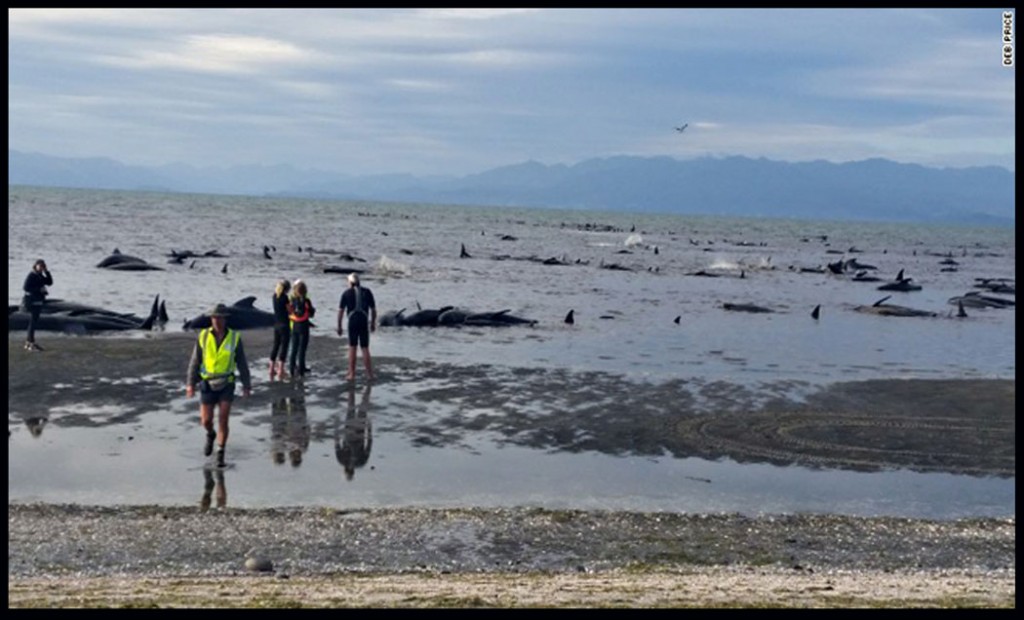 Thanks to the New Zealand people who are helping the stranded whales at Farewell Spit in Golden Bay in New Zealand
Thanks to the New Zealand people who are helping the stranded whales at Farewell Spit in Golden Bay in New Zealand
Hundreds of volunteers have come out to help the pilot whiles, pictured here at high tide.
Volunteers swoop on site
Hundreds of locals turned out to help keep the whales cool.
“There’s like two to three hundred car loads of people who have come to help, maybe three to four hundred people,” Department of Conservation Community Ranger Kath Inwood told CNN.
Just arrived at #farewellspit for sunrise to find whale stranding. Utterly, utterly heartbreaking. #stranding #whales #nz
According to Inwood, the area regularly saw beached whales and many residents were already trained in keeping the animals comfortable and helping to refloat them.
“Lots of people will be there pretty quick and already have the knowledge and training to help effectively,” she said.
Work will stop overnight for the safety of volunteers, who could be in danger around the large, stressed animals.
More than 400 pilot whales stranded themselves on a New Zealand beach on the evening of Thursday February 9.
‘This is a huge one’
The whales were first spotted in the water late on Thursday night, by a department staffer, before being found on Farewell Spit on Friday morning.
“Normally (they) are between November and March and it’s not many years we don’t have one. (But) obviously this is a huge one compared to most years … mostly they’re in ones and twos,” she said.
The largest whale stranding in New Zealand took place in 1918, when 1,000 whales stranded themselves on Chatham Islands.
The second largest was in Auckland in 1985, when 450 ended up on a beach.
“You don’t usually get this many traveling at once, we have 180 once before but I think a lot of (answers as to why) are unknown really,” Inwood said. “There’s a lot of different theories.”
For more information please visit the following link:
Hundreds of Whales Are Dead Following a Horrific Mass Stranding in New Zealand
Image: AP
In what’s considered the largest mass stranding in decades, over 400
pilot whales have beached themselves on a New Zealand shore. Hundreds of whales died overnight, and rescuers are now frantically working to save the dozens of remaining whales who are clinging to life.
According to New Zealand’s Department of Conservation (DOC), 416 pilot whales had beached themselves at Farewell Spit in Golden Bay, at the northern tip of the country’s south island. When the DOC arrived on the scene, around 250 to 300 whales had already perished, and by the time dawn broke this morning, more than 70 percent of the whales were dead. DOC staff and dozens of volunteers are now trying to save the remaining 80 to 90 whales.
Image: AP
For those trying to help, the sight must be truly horrific. Images from the scene show the beach littered with the large black-bodied corpses. The ones still alive are surrounded by rescue workers who are desperately trying to keep them cool, wet and and calm.
“It is one of the saddest things I have seen, that many sentient creatures just wasted on the beach,” noted volunteer rescuer Peter Wiles in The Guardian. The DOC has made a plea to the local community to come and help, and to provide towels, buckets, and sheets. Some rescuers have been working in the cold, wet conditions for upwards of nine hours straight. The response was incredible, and the DOC says no more volunteers are needed at this time.
The next opportunity to save the remaining whales is scheduled for noon tomorrow (Saturday) when the tide comes in. Frustratingly, the remaining whales were “refloated” at high tide earlier today (at about 10:30 am local time), but 90 of them came back and re-beached themselves. As social mammals, they were likely trying to stay close to their pod—the majority of which are now lying dead on the beach.
“We are trying to swim the whales out to sea and guide them but they don’t really take directions, they go where they want to go,” said DOC team leader in The Guardian. “Unless they get a couple of strong leaders who decide to head out to sea, the remaining whales will try and keep with their pod on the beach.”
New Zealand has one of the highest rates of whale strandings in the world; about 300 whales and dolphins beach themselves on the nation’s shorelines each year. Golden Bay is particularly conducive to strandings because of its shallow topography, which makes it difficult for whales to swim out once they’ve entered.
On top of that, pilot whales are notorious for stranding themselves. Entire groups of these whales will beach themselves on account of their strong social bonds. It’s possible that the whales got stuck when an old, sick, or injured whale got stranded, and its pod-mates swam to its aid. The stranding may also have something to do with the pilot whales’ compromised ability to use echo-location in shallow, gently sloping waters. These whales, which are the largest of the oceanic dolphins, prefer steep areas such as continental shelf edges. Farewell Spit, with its shallow waters, is a death trap.
This stranding is now considered the third largest in New Zealand’s recorded history. In 1918, over a thousand whales beached themselves on the Chatham Islands, and in 1985, 450 stranded themselves at Great Barrier Island off the coast of Auckland. Two years ago, 200 whales were killed in a mass stranding at Farewell Spit.
For more information please visit the following link:
https://gizmodo.com/hundreds-of-whales-are-dead-following-a-horrific-mass-s-1792213145
Hundreds of whales die in mass stranding on New Zealand beach
Urgent plea issued for locals to drop work and school commitments and head to the remote beach to save surviving whales
Volunteers try to save whales at New Zealand beach after mass stranding
Eleanor Ainge Roy in Dunedin
Thursday 9 February 2017 22.52 ESTFirst published on Thursday 9 February 2017 17.47 EST
Rescuers are trying to save dozens of whales after a mass stranding on a New Zealand beach thought to be the largest in decades.
The Department of Conservation (DOC) discovered 416 pilot whales had beached themselves overnight at Farewell Spit in Golden Bay at the top of the South Island, with more than 70% dying by the time dawn broke on Friday.
DOC staff and dozens of volunteers were on hand on Friday morning trying to save the remaining 100 whales.
Peter Wiles, who was one of the first volunteers to reach Farewell Spit, told Fairfax New Zealand that the white bellies of the whale corpses were lined up on the sand and floating in the shallows. “It is one of the saddest things I have seen, that many sentient creatures just wasted on the beach.”
As the morning wore on, an urgent plea was issued for locals to drop work and school commitments and head to the remote beach to save the whales, bringing towels, buckets and sheets to keep them cool, calm and wet.
Andrew Lamason, a team leader for the DOC Takaka area, said the stranding was the largest in living memory, and although he had “no clue” why the whales had beached themselves this time, Golden Bay was conducive to strandings because of its shallow bay, which made it difficult for whales to swim out once they’d entered.
At high tide, at 10.30am, the 100 remaining whales were successfully refloated, but early in the afternoon at low tide 90 of them re-beached themselves. DOC staff and up to 500 volunteers are now focused on keeping the surviving whales as healthy as possible until the next high tide at lunchtime tomorrow.
Lamason said it was common for whales involved in a mass stranding to re-beach themselves, because they were social animals and would stay in close proximity to their pod, the majority of which were now lying dead on the beach.
“We are trying to swim the whales out to sea and guide them but they don’t really take directions, they go where they want to go. Unless they get a couple of strong leaders who decide to head out to sea, the remaining whales will try and keep with their pod on the beach.”
Lamason said whale strandings, which were common in Golden Bay, were an emotionally exhausting event and anyone who wasn’t fit and strong and equipped to cope with the trauma were advised to stay away from the beach and not participate in the rescue effort.
“It is cold, it’s wet and some of us have been in and out of the water for nine hours now, we can only cope with robust volunteers, not ones that are going to break down, which happens quite often.” he said.
“We are in the farthest corner of the universe here but now volunteers have started turning up en masse and there are hundreds of people here and they have brought food and supplies so they are prepared to be here all day and all night if needed.”
Farewell Spit in New Zealand. (Image: NASA)
Cape Farewell is a headland in New Zealand 400 pilot whales who have become stranded at Farewell Spit in Golden Bay.
Tony @Tonylean
The beach was still littered with the bodies of the nearly 300 dead pilot whales which died overnight, but plans for disposing of their bodies naturally at sea were on hold while rescuers “concentrated on the living”, Lamason said.
The stranding at Farewell Spit makes it the third largest whale stranding in New Zealand’s recorded history.
In 1918, 1,000 whales beached themselves on the Chatham Islands, and in 1985 450 stranded at Great Barrier Island off the coast of Auckland.
According to Project Jonah, a whale rescue group, New Zealand has one of the highest rates of whale strandings in the world, and on average about 300 whales and dolphins beach themselves on Kiwi shores every year.
The reasons for whales strandings are still unclear, but it is thought a combination of factors contribute, with old, sick and injured whales being particularly vulnerable. Navigational errors among pods are also common, especially when chasing food or coming close to shore to avoid predators such as orcas.
Since 1840, more than 5,000 whales and dolphins have beached themselves on New Zealand shores according to DOC records.
Strandings occur year round, but usually involve only one or two animals. DOC respond to about 85 events a year, usually involving just a single animal.
For more information please visit the following link:
https://www.theguardian.com/world/2017/feb/10/hundreds-whales-die-mass-stranding-new-zealand-beach
Direct causal evidence for this particular beaching may not be discoverable, but human action has been changing ocean chemistry, adding mechanical pollutants and turning the whole ocean into an acoustic combination hall-of-mirrors and shooting range for some time. Even if these activities are not the proximate cause of beaching, we’ve no right to destroy the ecological systems arrived at by billions of years of biophysical process….much less the sanctity of life there.
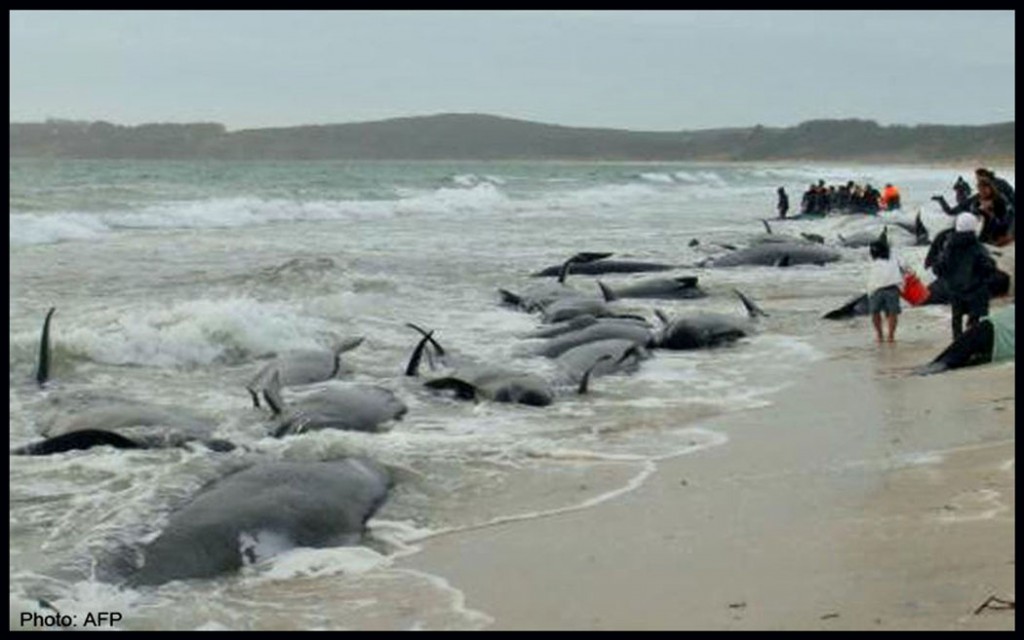
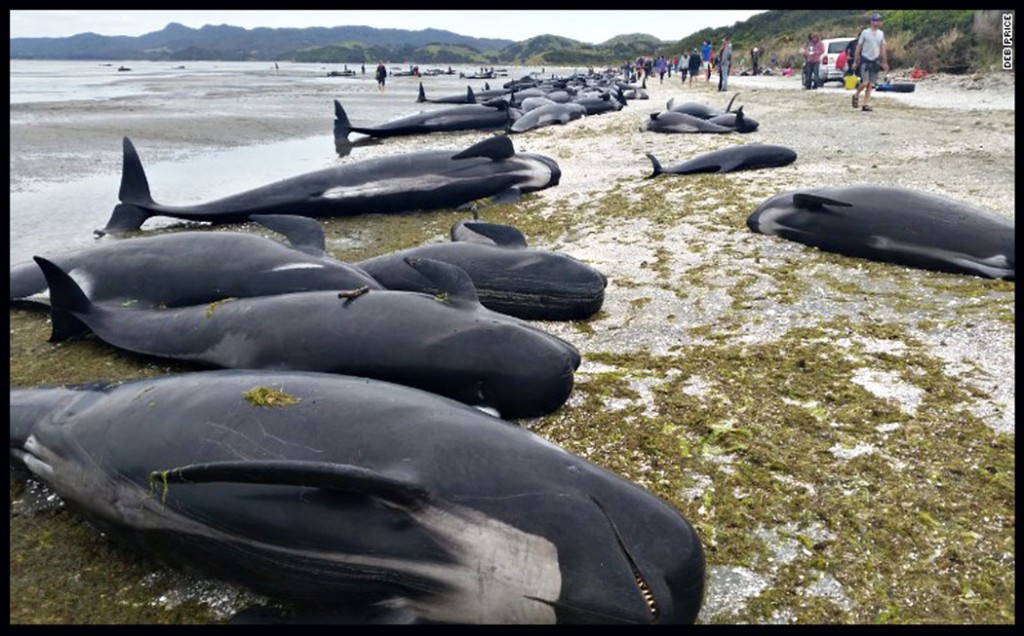
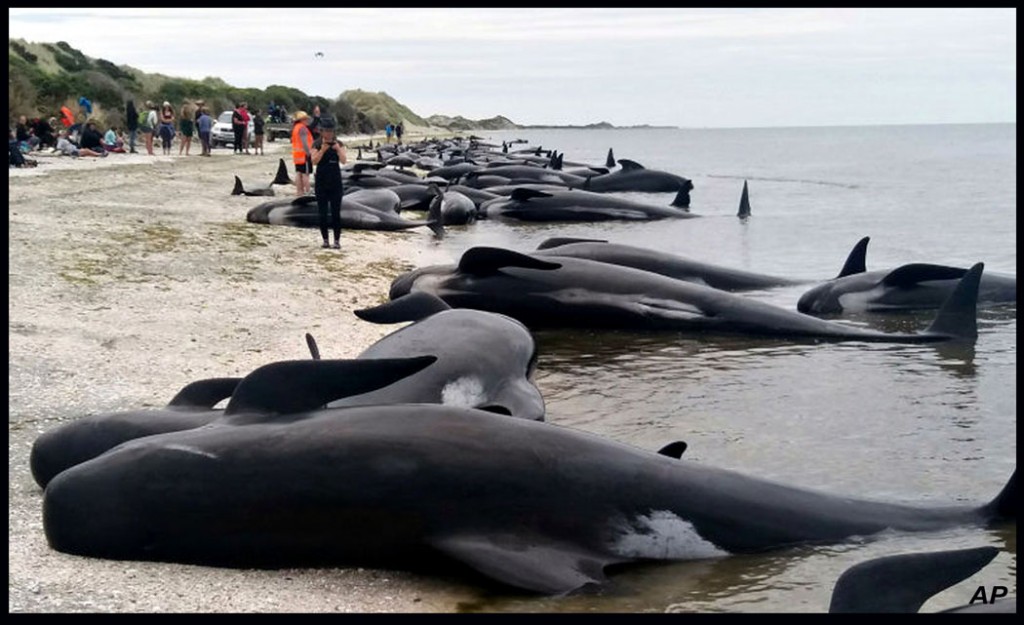
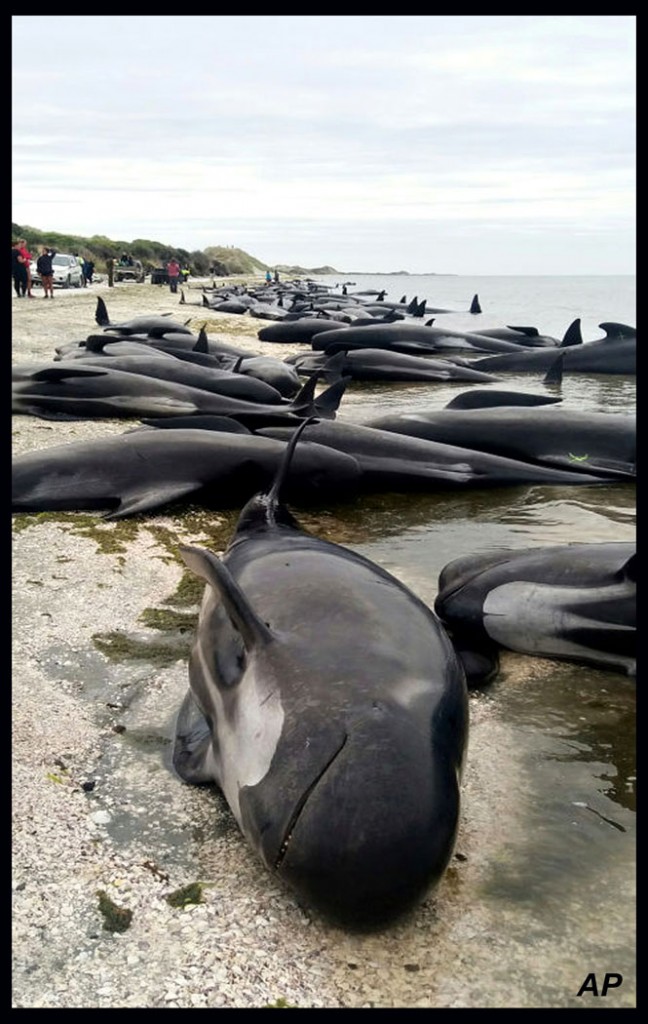
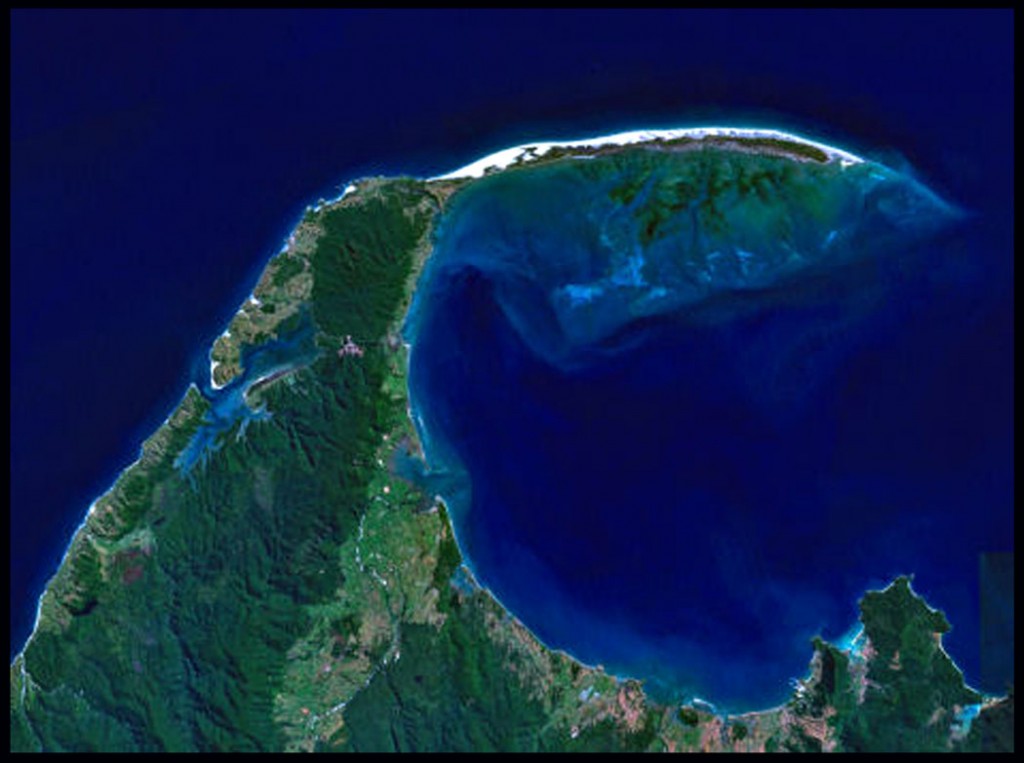
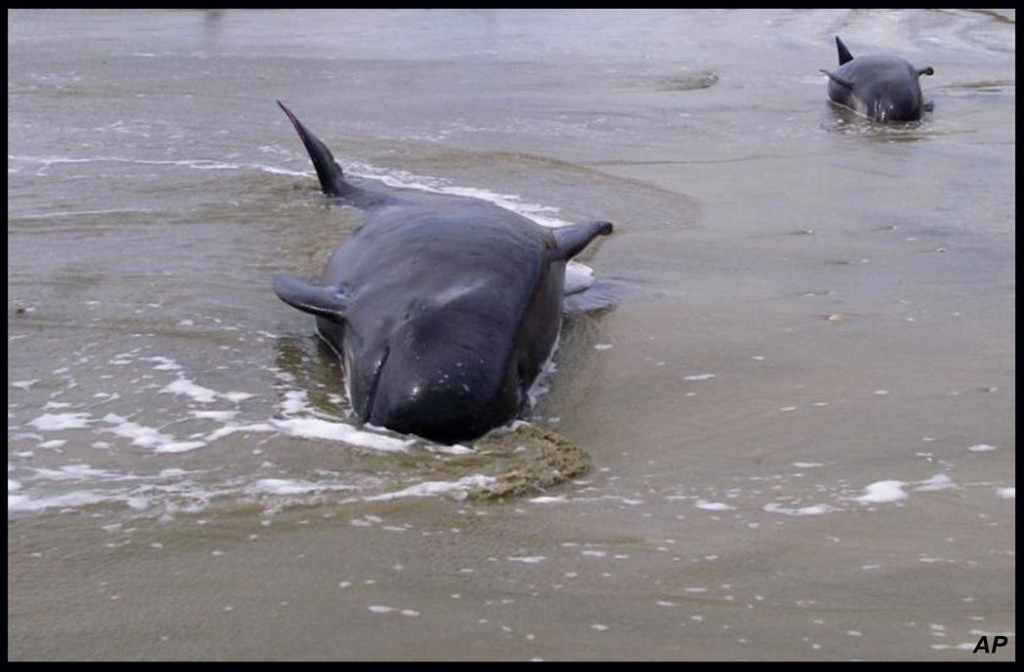
Leave a Reply